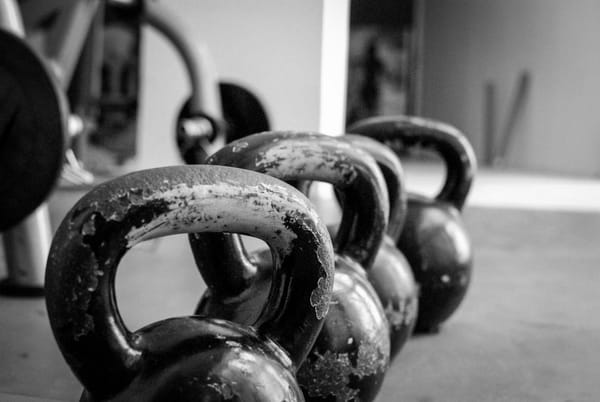Fear Of Having Mislived And 5 Principles To Live The Good Life
Live a life true to yourself to live the good life.

Yesterday I reread an article that was originally published on The Guardian's website back in 2012 titled the Top Five Regrets of the Dying. It is very likely an article you've read; it resurfaces periodically on social media. I surmise the article is recycled frequently because many of us realize we're on paths toward similar outcomes.
The article references the findings of an Australian nurse, Bronnie Ware, who spent several years caring for patients during the last 12 weeks of their lives. The Guardian piece summarizes the top five regrets of those on their deathbed as culled from a book written by Bronnie. They are:
- I wish I'd had the courage to live a life true to myself.
- I wish I hadn't worked so hard.
- I wish I'd had the courage to express my feelings.
- I wish I'd stayed in touch with friends.
- I wish I had let myself be happier.
Why have we adopted lifestyles that have us lamenting our lives when our time comes to an end? We should be dying without regrets. More importantly, we should be living without regrets.
In William B. Irvine's book, A Guide To The Good Life, he makes the following remarks when contemplating why people are afraid of dying.
“Some are disturbed because they fear what might come after death. Many more, though, are disturbed because they fear that they have mislived—that they have, that is, lived without having attained the things in life that are truly valuable.”
Mislived — such a powerful word. Clearly, most of us desire lives that haven't been mislived. We want lives full of valuable elements that construct a well lived existence. However, are we striving or merely wishing for better lives? Wishing is reading this, making a mental note, then falling straight back into the lifestyles that lead us in the wrong direction. Striving is reading then taking steps to actively engage in living unregrettably.
How do we live unregrettably? Thankfully Bronnie's findings give us a blueprint for doing just that. We can create a list of what is truly valuable and this list can become a fair measurement of living, and thus having lived, a good life. Below I reframe the top five regrets of the dying into five principles for the living, with some amendments.
Here are the top five principles to live the good life.
Live a life true to yourself.
Take actions in accordance to your gut. Have dreams and pursue them relentlessly. However, take measures to pursue them without expectation and self judgement. The pursuit of that which feels true to you is the objective, not the outcome. Pursue the dream of writing, not that of being published. Pursue a life of travel without being overly attached to the destinations. If you blindly pursue a path because others have lain it, you will have regrets.
Work hard for what you value.
I'm going to amend "don't work so hard" to "work hard for what you value". Bronnie's finding was the regret of missing out on family time and not placing enough value on relationships with partners because work was the priority. This is directly related to a profession, not hard work. Relationships are hard work, living true to yourself is hard work, most of the guidelines on this list are hard work. So, work hard, but equally across all that you value.
Express your feelings.
Expressing your feelings is directly related to being true to yourself. Express your feelings, express your desires, even if they conflict with others. Don't allow shame or expectations to quiet your soul. You may not always be popular for speaking your mind, but in doing so you’d better be able to stave off inner turmoil. To express feelings you must make a real effort to allow and explore them. So many of us shut down because our feelings are uncomfortable. Eventually the ignoring wears us down mentally and physically.
Stay in touch with friends.
This one needs little explanation. There is value in connection. Despite social platforms, our society is more isolated and increasingly lonely. This is contributing to our discontent and growing depression rates. As an introvert, this one has been difficult for me. It takes hard work as well. We must allow time to cultivate relationships; we should not fear reengaging because considerable time has passed.
Allow yourself to be happier.
"This is a surprisingly common one. Many did not realise until the end that happiness is a choice. They had stayed stuck in old patterns and habits. The so-called 'comfort' of familiarity overflowed into their emotions, as well as their physical lives. Fear of change had them pretending to others, and to their selves, that they were content, when deep within, they longed to laugh properly and have silliness in their life again." — via The Guardian
"Be happy," is the cliche. The difficult task is allowing ourselves to be happy. We need to release the expectations of being serious, responsible and "adulting". We need to stop considering what others think and allow the silliness and joy that is within each of us to drip from our pores like sweat.
Great is the man who has not lost his childlike heart. — Mencius
Contemplate the list this week. Think about what you can do to assure an unregrettable life.
Let's all agree to start with allowing ourselves to be happy. — Paul




